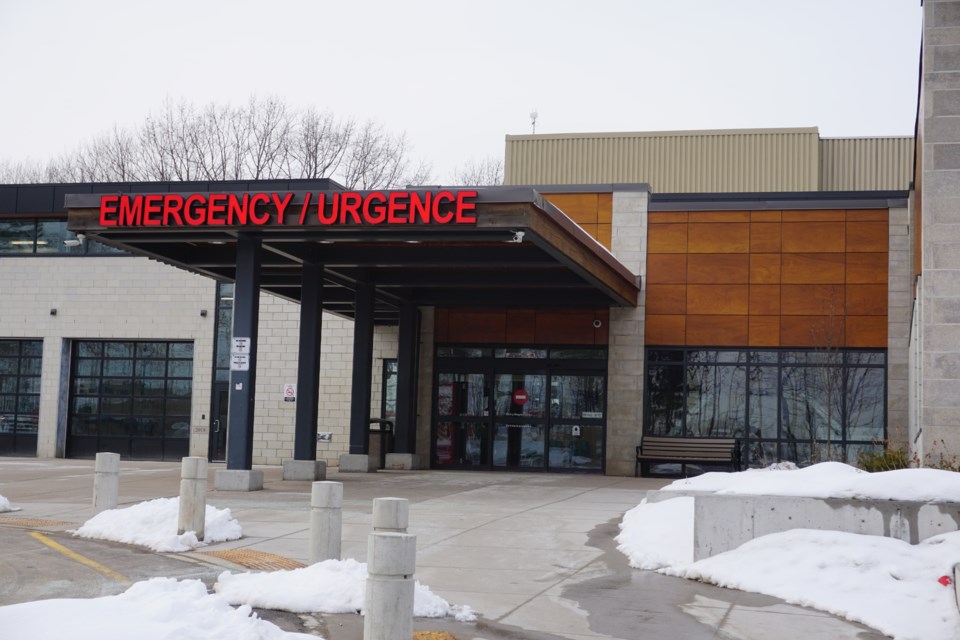For Matthew Lawson, the problem of mental illness and the lack of available acute-care beds is very real.
The Georgian Bay General Hospital CEO recalled a recent occasion when three area residents waited close to 100 hours at GBGH to get a mental-health bed at one of three regional hospitals.
Lawson said that meant that since the hospital only has two “safe rooms,” the other patient had to stay in a regular room. When something like this occurs, additional hospital staffers such as nurses and security personnel must make regular visits to the regular room to ensure everything is copacetic.
So with mental-health issues remaining a major local concern, Georgian Bay General Hospital continues to push for a dedicated 24-bed, mental-health wing, featuring 16 acute-care and eight geriatric beds.
Some might have wondered whether the hospital’s plan was affected by December’s announcement by Health Minister Sylvia Jones that Waypoint Centre for Mental Health Care would be adding 20 permanent, inpatient acute-care beds.
“We’re clarifying that we’re still proceeding because there’s a need in the community,” Lawson told MidlandToday, pointing out GBGH had fully supported Waypoint's proposal.
“We see a lot of increase in demand for mental-health services (and) GBGH has a long-standing path forward to continue to expand supports for the community.”
Currently, GBGH cares for approximately 1,700 mental-health patients every year. This works out to about three patients in crisis every day.
Some of those arriving at the hospital are Form One patients, which means they have to stay at the hospital until they can be transferred to an accredited mental-health unit.
The problem, according to hospital officials, is that the hospital doesn’t have acute mental health services and is not equipped or funded to care for mental health patients.
Therefore, when a patient arrives in crisis at the hospital, the emergency room is the first point of contact. From there, he or she will be transferred to an acute mental health bed at Royal Victoria Regional Health Centre, Orillia Soldiers’ Memorial Hospital, Waypoint Centre for Mental Health Care or, due to lack of beds, sometimes even farther afield.
“The demand for mental-health services is only going to grow,” Lawson said, noting visits to hospital emergency rooms by those seeking mental-health support is currently higher in Simcoe-Muskoka than anywhere else in the province.
“We already have an aging population that already uses our acute-care services.”
And with that aging population also comes mental-health issues like delirium and dementia, Lawson said, pointing out those experiencing these kinds of issues can be “combative and need some additional support.’
Besides hospitalization, GBGH also plans to offer day programs geared towards those needing mental-health services. As well, it would also have a psychiatrist on-site along with additional social workers.
The hospital has submitted a detailed schematic to the ministry that identifies projected patient volumes and the projected square footage needed for the new unit.
If everything went well, Lawson said they hope a new 66,000-square-foot unit could be operational within the next few years. The total cost of the project would be in the $100-million range with the province picking up 90 percent of capital costs.
Lawson said the wing would be built so it would be not only compatible with the existing hospital, but could also become part of a new hospital if and when that day comes.
“We’ve received support from Ontario Health for our proposal so we’re excited to get a shovel in the ground,” Lawson said, noting the demand for mental-health services is only going to increase across the region.
“We’re working as a system to respond to the collective regional needs,” Lawson said. “We want to get ahead of the curve rather than playing catch-up.”
